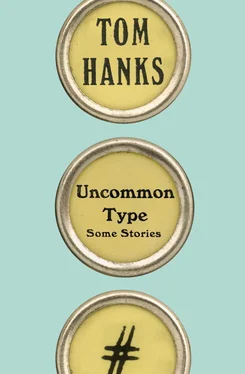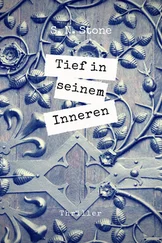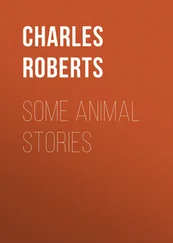Kenny was watching Channel 40—a whole morning of cartoons and commercials for toys—when the phone on the wall of the kitchen rang. After saying hello, his mother said something he did not understand.
“ Que paso, mi amor? What? Oh, no! He was looking forward to it. Are you sure?” Kenny looked at his mom, she at him as she listened. “Oh! Yes, that could work. Yes, two birds with one stone. Love it. Okay.” She listened on the phone for a moment more, then giggled as she hung up.
“Kenny Bear,” she sang, coming into the room. “Change of plans. Jose, Mr. Garcia, had business come up and he can’t fly you in his plane today. But…” She cocked her head, as though a more exciting possibility was about to be floated, like there was a trip on a rocket ship available instead. “He can fly you all the way home tomorrow! We won’t have to drive.”
Kenny did not quite understand how a flight home on an airplane was possible. Would the plane land on Webster Road right at his house? Wouldn’t they crash into the blue gum trees?
—
With the whole day now to fill, Kenny and his mom spent the late morning at Fairytale Town, a place for kids run by the Parks Department. There were little houses painted to look like they were made of straw, sticks, and stones; a long and curling version of a yellow brick road; and puppet shows every hour until 3:00 p.m. The whole family used to visit the storybook village when Kenny was little, although never with Dad, who was always sleeping at home. Since Kenny was now nearly ten years old, the fairy-tale sets were too young for him. Even the swings were for kids littler than Kenny.
The zoo was nearby. That, too, had been a favorite destination when Kenny was smaller. The monkeys still aired out their limbs by swinging on the rings in their cage, the elephants were still in a pen on the other side of the fence that was no longer as tall as it had been, and the giraffes could still be fed carrots from pails full of them, kept on hand by the zookeepers. He and his mom stayed at the zoo longer than they did Fairytale Town, lingering in the Reptile House. There was a huge python in there, wrapped around part of a tree with his head, as big as a football, right next to the window glass.
For lunch they ate at a little market that also had sidewalk tables with checkerboard cloths. Kenny had a tuna sandwich with no lettuce or tomato, just the tuna, and his mother had a small tub of pasta salad. To drink, there was golden juice that came in bottles shaped like apples—this was instead of a Coke. Kenny was disappointed at first, but the apple juice was so sweet, so thick that his whole body felt good when the drink slid down his throat and into his tummy. He imagined that must be what drinking wine was like, since grown-ups were always making such a big deal about “fine wines.” He had his Hostess cupcakes for dessert.
“What shall we do now, Kenny Bear?” his mom asked. “What if we tried our hands at peewee golf?”
She drove the red Fiat onto the freeway, heading west toward the foothills. When they crossed the river, Kenny realized they were near the exit for Sunset Avenue, which was the off-ramp they used to take to get home, to his old house. He recognized the big green sign with the white arrow and SUNSET AVE, and he saw the Chevron station on one side and the Phillips 66 station on the other. But his mom didn’t merge into the exit lane. She kept going. Farther down the highway a colorful little town of tiny windmills and castles appeared, the Miniature Golf & Family Fun Center. The place looked brand-new and magical.
Because it was a Saturday, there was a pretty good crowd made up of carloads of families and idle kids who had ridden their bikes or been dropped off, kids who were supplied with enough money for a day of Fun-with-a-capital-F. There was a circle of baseball batting cages with automatic pitching machines, an arcade filled with pinball and shooting games. A snack bar served corn dogs and giant pretzels and Pepsi-Cola. Kenny and his mom had to wait in line to get the balls and the right-size putters from a teenage boy who smiled at his mom with the same cow eyes as the man at the Shell station in Iron Bend. There was a choice of two courses to play and the young man behind the counter not only suggested the Magic-Land course, with the castle, but also walked them to the first hole and took pains to explain how to use the little pencil to keep score on the card. He also explained that if they got a hole in one on the eighteenth, they’d win a free game.
“I think we have the gist of it,” his mom said to the kid, hoping to get rid of him. Still, he lingered until they both putted. He wished them a good round and went back to the counter to hand out more putters and colored golf balls.
They never bothered to keep score. Kenny hacked at his ball, the purple one, caring more about distance than accuracy, taking as many strokes as necessary to make the hole. His mom was a bit more careful. The most fun hole was the one where Kenny hit his ball into a polka-dotted toadstool and it disappeared for a few seconds before coming out of one of three tubes onto a lower circular green. From there, he had to hit the ball into a giant frog’s mouth that moved up and down like the drawbridge on a castle. Again, the ball disappeared, coming out at an even lower green and nearly rolling right into the cup. He only had to tap the purple ball with his short putter. His mom took forever to make it through the frog’s mouth.
“Peewee golf is pretty fun,” he said to his mom when they were back in the Fiat. She had gotten him a corn dog, which he ate before getting into the sports car.
“You’re awfully good at it,” she said, shifting gears as they pulled out of the Family Fun Center parking lot and headed back into the city, back toward the Sunset Avenue off-ramp.
“Mom?” he asked. She was lighting another of her long cigarettes with the Fiat’s lighter. “Can we go see the old house?”
His mother blew smoke out of her mouth, and she watched it disappear into the wind. She did not want to see the old house. She had brought Kenny home from the hospital to that house two days after he was born. His brother and sister had been born in Berkeley, but they had few memories of the apartment there. She had watched her older kids play in the backyard of that house as she carried little Kenny around in the crook of her hip. Kenny had crawled on the hooked rug—her mother’s old hooked rug—in the living room until he learned to walk on it. That house carried memories of Christmases and Halloweens, of birthday parties for the kids in the neighborhood, the sweeter memories of her marriage and her life as a mother.
But unhappiness also lingered in the corners of the place, arguments sure to be echoing still, a loneliness that haunted the nights after the kids were asleep as well as the days when they were a maddening handful. To escape—the house, the kids, the boredom found in the shadows of discontent—she took a job at the Leamington Hotel. There was an opening for a waitress. She’d drive in early, before her husband came in for the lunch and dinner shift, leaving the kids with one of the Mormon teenage girls who lived down the block. The money was nice, of course, but the activity was what she looked forward to every day—having a place to go, work to do, and people to talk with. She was still Mrs. Karl Stahl, and her husband was the head of the kitchen, but everyone, including Jose Garcia, called her by her first name. She proved to be so very good with numbers that the hotel’s general manager moved her from the coffee shop to a bookkeeper’s desk. She had risen to the sales office after she divorced Kenny’s father and was no longer Mrs. Karl Stahl.
She had walked away from that old house a lifetime ago. She did not want to see the place again.
Читать дальше











